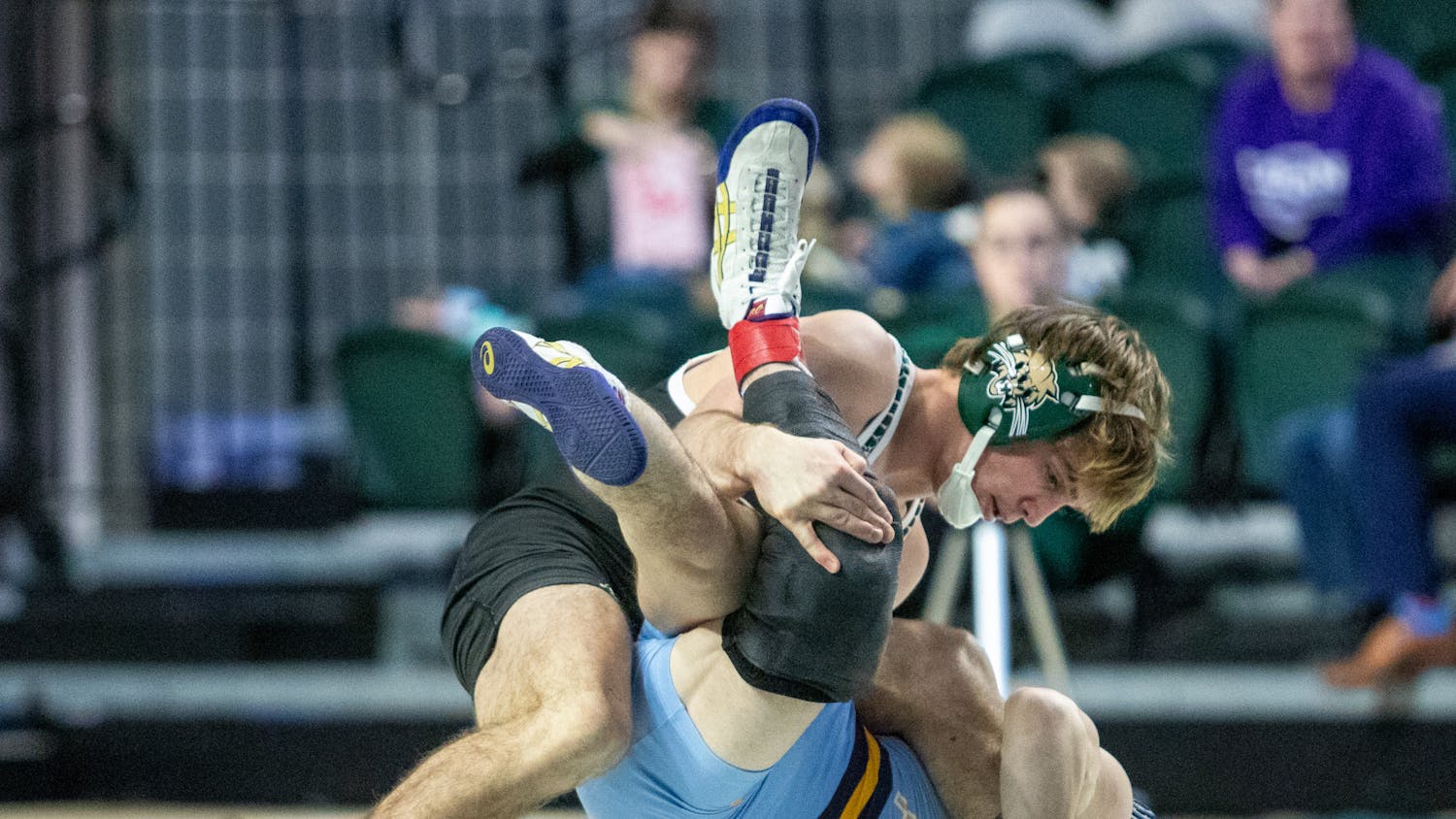Coach Frank Solich readjusted himself in his chair and slid his fingers across the green table cover Monday when he was asked the same question that has peppered college football coaches across the country for the last week.
On Sept. 30, California Gov. Gavin Newsom signed into law Senate Bill 206, which will allow college athletes to receive payment for the use of their name, image and likeness. The bill, commonly known as the Fair Pay to Play Act and set to go in effect in 2023, goes against strict NCAA standards that prohibit student athletes from receiving any forms of endorsement for their work in college athletics.
The bill could also set a precedent for other states to follow, and that could drastically change the landscape of the recruitment process and transfer portal for Ohio and other Group of 5 schools.
Solich, who is 75 years old and the oldest coach in NCAA Division I football, took a moment to ponder the question.
He didn’t speculate, however, on how a similar law might affect his program.
“Obviously, this will be an important case and an important time,“ Solich said. “What that will mean in the profession down the road? I guess I’m not sure. Right now, it seems to be a thought that, you know, getting too far away from what’s been established and what’s happening now. It might be a tough thing for the sport and for the NCAA in knowing how to handle this. There’s many different views on it.”
Asked if he had developed strong viewpoints on the bill, Solich said this: “I like things that are positive for players, but it’s a tough call. A lot of the money goes back into doing things for the betterment of athletes when you talk about the money that’s thrown into the facilities and year-round training tables, all the things that cost a lot of money. Coaches in this day and age make a lot of money from it. That’s where the hang up comes in. Trying to have it work for the players in a manner that’s going to open that up for them, I don’t know how the NCAA will look at that, but I think they’ll try to protect what they’ve got. What that means? I don’t know.”
In an interview with The Post last Thursday, Ohio athletic director Julie Cromer said she believes there is a way for student athletes to receive fair compensation for their athletic careers.
“I think that it is not impossible to find a way for student athletes to have an opportunity to seek opportunities,“ Cromer said. “I think there are a lot of viewpoints about this that need to be synthesized and considered. All of them are valuable, and all of them are an important part of the debate, including that of our student athletes.”
Cromer, who was hired in August after she was the senior deputy athletics director at University of Arkansas, isn’t sure what implications a similar law might have for Ohio athletics, either.
“I think it’s a little early to tell,” Cromer said. “If the NCAA is able to come up with solutions, particularly that would be implemented sooner than the California bill and some of the others that have a lagging timeline, then I think the landscape could change more quickly.”






